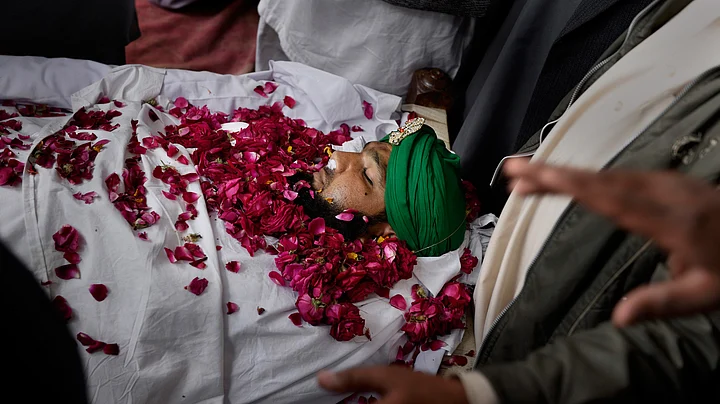Pakistan’s execution of ex-police commando Mumtaz Qadri, who brutally assassinated liberal Punjab governor Salman Taseer, has triggered protests by thousands of Islamists who called it a “black day”.
Qadri, who shot Taseer 28 times in 2011 in broad daylight was hanged in Adialia jail of Rawalpindi city at around 4:30 am, officials said.
Within hours of the hanging, street protests broke out in several cities by the supporters of Qadri, who considered him a hero for defending the faith, and had threatened violence if he was executed.
Rangers and riot police were deployed outside Qadri’s home in Rawalpindi where hundreds of supporters had gathered and also in nearby Islamabad.
A mob ransacked a local TV channel vehicle and attacked reporters. In the port city of Karachi, Qadri’s supporters clashed with police.
Most schools closed down in Islamabad and Rawalpindi, fearing violence by Qadri’s supporters. His supporters blocked roads, burned tyres and forced many shopkeepers to close their stores.
Activists of Sunni groups, who had given a hero-like status to Qadri, blocked main intersections in Rawalpindi, cutting off the main link with capital Islamabad.
A senior police official said that a high-alert had been issued in Rawalpindi and Punjab province to tackle any untoward situation.
The biggest protest was held in Karachi with around 8,000 people taking to the streets.
After assassinating Taseer in January 2011, Qadri admitted the killing and said he objected to the governor’s calls to reform the blasphemy laws. Taseer, who died aged 66, had come out in support of a Christian woman charged with blasphemy and termed the regulations “black laws”, drawing the ire of extremists.
(At The Quint, we question everything. Play an active role in shaping our journalism by becoming a member today.)
